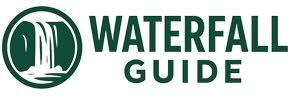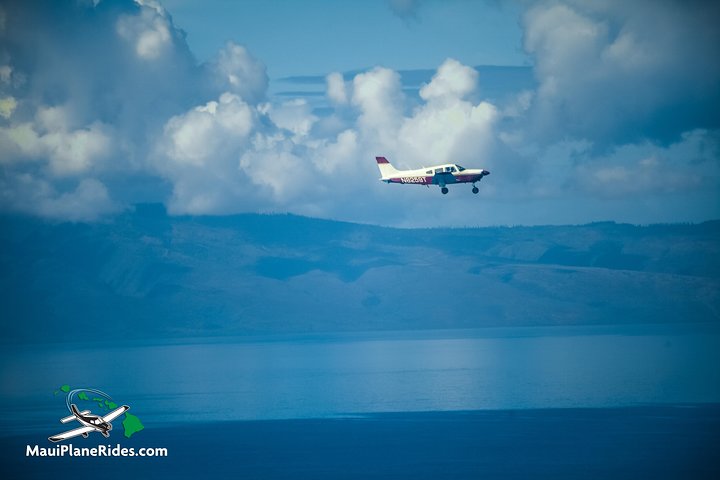Maui From Above: The Private Circle-Island Flight You’ll Tell Everyone About
Circle Maui’s waterfalls, reefs, and volcanic rims on a private flight built for window-seat daydreamers.
Morning light brushes the runway at Kahului as trade winds shoulder the clouds toward Haleakalā’s rim. The cabin door clicks shut, the propeller spins, and the island’s buzz falls away. In seconds, Maui slips beneath your window like a living atlas—reefs sketched in turquoise, gulches inked in deep green, sugarcane ghosts tracing straight lines across an island built by lava and shaped by rain. The airplane’s metal skin hums, the nose lifts, and the coastline begins to unfurl—patient, unhurried, daring you to look closer.
Trail Wisdom
Fly Early For Smooth Air
Morning departures generally offer calmer winds, clearer views, and the best light on the Hāna coast and West Maui ridges.
Wear Dark, Non-Reflective Clothing
Light colors reflect in windows and ruin photos—dark tops help eliminate glare and ghosting.
Pack Light And Share Views
For balance and safety, the pilot assigns seats. Travel light and be ready to swap sides (when permitted) so everyone gets a turn.
Motion Management
If you get woozy, take ginger or Sea-Bands before boarding and keep your eyes on the horizon during turns.
Local Knowledge
Hidden Gems
- •Keʻanae Peninsula’s taro fields—an aerial mosaic and a worthy roadside stop if you later drive the Hāna Highway
- •Molokini’s crescent—spot the reef rim from above, then snorkel it on a separate morning boat for a two-angle day
Wildlife
Humpback whale (Koholā) in winter, Hawaiian green sea turtle (Honu) along nearshore reefs
Conservation Note
Pilots follow fly-neighborly noise-abatement routes; as a guest, minimize sunscreen and oil smears on windows, pack out all trash, and support marine-safe practices that protect migrating whales.
Maui is a ‘double’ island formed by two shield volcanoes—Haleakalā and Mauna Kāhalawai—joined by lava flows; traditional ahupua‘a land divisions once ran mauka (mountain) to makai (sea), organizing life around water and resource flow.
Seasonal Guide
spring
Best for: Stable weather, Clear morning visibility
Challenges: Occasional showers on windward side
Shoulder season brings reliable tradewinds and crisp views—great for full island loops with minimal turbulence.
summer
Best for: Brilliant water color, Long daylight
Challenges: Stronger trades mid-day, Glare in harsh light
Expect vivid blues and lush valleys; aim for earlier flights to beat afternoon bumps and high-contrast glare.
fall
Best for: Calmer winds, Fewer crowds
Challenges: Variable showers as seasons shift
A quiet time to fly with good odds for smooth air and balanced light across both coasts.
winter
Best for: Whale sightings, Dramatic surf
Challenges: More rain and clouds on windward slopes, Potential for turbulence
Prime time for humpback whale activity and powerful swells; book morning flights and stay flexible with weather.
Photographer's Notes
What to Bring
Dark, Non-Reflective ShirtEssential
Reduces window reflections and improves photo quality.
Lightweight Windbreaker
Cabins can feel cool with airflow, especially on winter mornings.
Camera Or Phone With Fast Shutter
A higher shutter speed (1/1000s) freezes motion and delivers sharp images from a moving aircraft.
Rubber Lens Hood Or Microfiber Cloth
Press a rubber hood to the window or wipe it clean to cut glare and smudges for clearer shots.
Common Questions
Where does the flight depart from?
Most private air tours depart from Kahului Airport (OGG) on Maui’s north shore; arrival details and check-in instructions are provided after booking.
How long is the flight and how many people can go?
Plan for 60–80 minutes in the air, with a private cabin for two to five passengers depending on weight and balance.
Will we see whales?
During winter (roughly December–April), humpback whales are commonly spotted from the air, but sightings aren’t guaranteed.
What should I wear and bring?
Wear dark, non-reflective clothing to avoid window glare, bring a light layer, sunglasses, and a camera or phone with plenty of storage and battery.
What about motion sickness?
Most guests feel comfortable on the smooth, steady flight; if you’re sensitive, take ginger, use acupressure bands, and focus on the horizon during turns.
What happens if the weather turns?
Safety is paramount; routes or timing may shift for clouds and wind. If conditions aren’t safe, tours are rescheduled or refunded per operator policy.
What to Pack
Dark, non-reflective shirt to cut window glare; lightweight windbreaker for cool cabin airflow; ginger chews or Sea-Bands if you’re motion-sensitive; camera or phone with extra battery and a rubber lens hood to block reflections.
Did You Know
Puʻu Kukui, the summit of the West Maui Mountains, is among the wettest places on Earth, receiving more than 300 inches of rain annually, which fuels the countless waterfalls seen on this flight.
Quick Travel Tips
Book a morning slot for smoother air and softer light; arrive 30 minutes early with a government-issued ID; be ready to provide accurate passenger weights for safe seating; winter flights offer prime whale-spotting from December to April.
Local Flavor
Post-flight, head to Tin Roof in Kahului for modern local comfort food bowls, or cool off with a classic scoop from Tasaka Guri Guri. If you’re up for a short drive, Maui Brewing Co. in Kīhei pours island-made beers with views of Haleakalā at sunset.
Logistics Snapshot
Closest airport: Kahului (OGG). Departure: Kahului Airport general aviation area. Drive times: ~20–30 minutes from Kīhei/Wailea, ~45–60 minutes from Kā‘anapali/Kapalua (traffic varies). Cell service: strong at the airport, not applicable in-flight. Permits: none required; bring a valid photo ID. Check-in: typically 30 minutes prior. Weight and balance: accurate passenger weights required for safety and seating.
Sustainability Note
Maui’s nearshore waters are part of the Hawaiian Islands Humpback Whale National Marine Sanctuary—respect wildlife by keeping voices low during sightings and supporting operators who follow fly-neighborly routes and minimize noise over sensitive coastlines.
Continue Reading

Pack, Paddle, Repeat: Multi-Day Kayak & Beach Gear Rentals on Oahu
Keep your travel light and your days full: multi‑day kayak and beach gear rentals on Oʻahu let you paddle at dawn, snorkel at noon, and lounge on sand without hauling equipment. Delivery across the island makes coastal exploration effortless.
Honolulu, Hawaii

River Running in the Kahana Rainforest: A Four‑Hour Paddle Into Oʻahu’s Lush Backcountry
Leave the beach crowds and follow a freshwater ribbon into Kahana Valley. This four‑hour river kayak rental delivers rainforest shade, mountain views, and a gentle introduction to Oʻahu’s inland waterways.
Kailua, Hawaii

